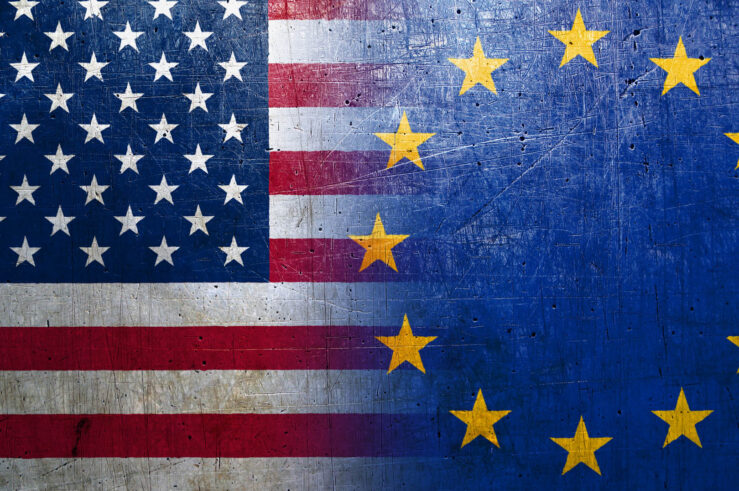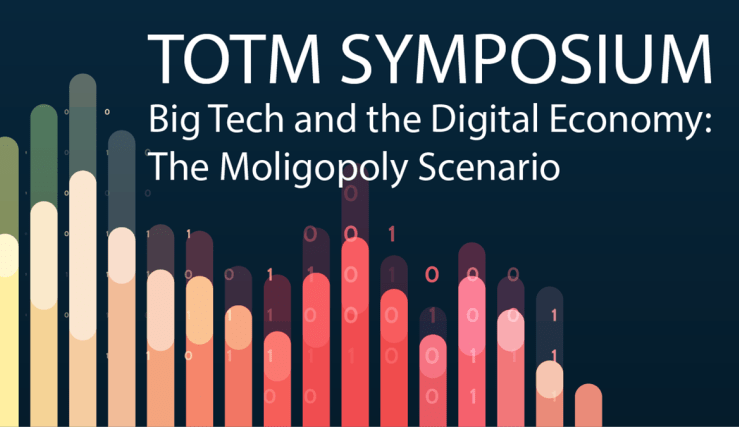Showing archive for: “Platforms”
More Evidence that the Patent System Promotes Dynamic Competition and Consumer Welfare
The patent system is too often caricatured as involving the grant of “monopolies” that may be used to delay entry and retard competition in key sectors of the economy. The accumulation of allegedly “poor-quality” patents into thickets and portfolios held by “patent trolls” is said by critics to spawn excessive royalty-licensing demands and threatened “holdups” ... More Evidence that the Patent System Promotes Dynamic Competition and Consumer Welfare
Breaking Down the American Choice and Innovation Online Act
The American Choice and Innovation Online Act (previously called the Platform Anti-Monopoly Act), introduced earlier this summer by U.S. Rep. David Cicilline (D-R.I.), would significantly change the nature of digital platforms and, with them, the internet itself. Taken together, the bill’s provisions would turn platforms into passive intermediaries, undermining many of the features that make ... Breaking Down the American Choice and Innovation Online Act
Doubling Down on Durbin Disaster: Interchange Fee Caps Shortchange Consumers
The U.S. economy survived the COVID-19 pandemic and associated government-imposed business shutdowns with a variety of innovations that facilitated online shopping, contactless payments, and reduced use and handling of cash, a known vector of disease transmission. While many of these innovations were new, they would have been impossible but for their reliance on an established ... Doubling Down on Durbin Disaster: Interchange Fee Caps Shortchange Consumers
Technology Mergers and the Market for Corporate Control
In recent years, a growing chorus of voices has argued that existing merger rules fail to apprehend competitively significant mergers, either because they fall below existing merger-filing thresholds or because they affect innovation in ways that are purportedly ignored. These fears are particularly acute in the pharmaceutical and tech industries, where several high-profile academic articles ... Technology Mergers and the Market for Corporate Control
FTC Antitrust Enforcement and the Rule of Law
The language of the federal antitrust laws is extremely general. Over more than a century, the federal courts have applied common-law techniques to construe this general language to provide guidance to the private sector as to what does or does not run afoul of the law. The interpretive process has been fraught with some uncertainty, ... FTC Antitrust Enforcement and the Rule of Law
How US and EU Competition Law Differ
U.S. and European competition laws diverge in numerous ways that have important real-world effects. Understanding these differences is vital, particularly as lawmakers in the United States, and the rest of the world, consider adopting a more “European” approach to competition. In broad terms, the European approach is more centralized and political. The European Commission’s Directorate ... How US and EU Competition Law Differ
Old Ideas and the New New Deal
Over the past decade and a half, virtually every branch of the federal government has taken steps to weaken the patent system. As reflected in President Joe Biden’s July 2021 executive order, these restraints on patent enforcement are now being coupled with antitrust policies that, in large part, adopt a “big is bad” approach in ... Old Ideas and the New New Deal
How Changing Section 230 Could Disrupt Insurance Markets
In recent years, a diverse cross-section of advocates and politicians have leveled criticisms at Section 230 of the Communications Decency Act and its grant of legal immunity to interactive computer services. Proposed legislative changes to the law have been put forward by both Republicans and Democrats. It remains unclear whether Congress (or the courts) will ... How Changing Section 230 Could Disrupt Insurance Markets
The Klobuchar Bill’s Not-So-Bright Lines for Antitrust Scrutiny
In a recent op-ed, Robert Bork Jr. laments the Biden administration’s drive to jettison the Consumer Welfare Standard that has formed nearly half a century of antitrust jurisprudence. The move can be seen in the near-revolution at the Federal Trade Commission, in the president’s executive order on competition enforcement, and in several of the major ... The Klobuchar Bill’s Not-So-Bright Lines for Antitrust Scrutiny
Antitrust Statutorification
A lot of water has gone under the bridge since my book was published last year. To close this symposium, I thought I would discuss the new phase of antirust statutorification taking place before our eyes. In the United States, Congress is working on five antitrust bills that propose to subject platforms to stringent obligations, ... Antitrust Statutorification
ICLE at the Oxford Union
Earlier this year, the International Center for Law & Economics (ICLE) hosted a conference with the Oxford Union on the themes of innovation, competition, and economic growth with some of our favorite scholars. Though attendance at the event itself was reserved for Oxford Union members, videos from that day are now available for everyone to ... ICLE at the Oxford Union
A First Glance at the Biden Executive Order on Competition: The Good and the Bad (Including Much that Looks Ugly)
The Biden Administration’s July 9 Executive Order on Promoting Competition in the American Economy is very much a mixed bag—some positive aspects, but many negative ones. It will have some positive effects on economic welfare, to the extent it succeeds in lifting artificial barriers to competition that harm consumers and workers—such as allowing direct sales ... A First Glance at the Biden Executive Order on Competition: The Good and the Bad (Including Much that Looks Ugly)










